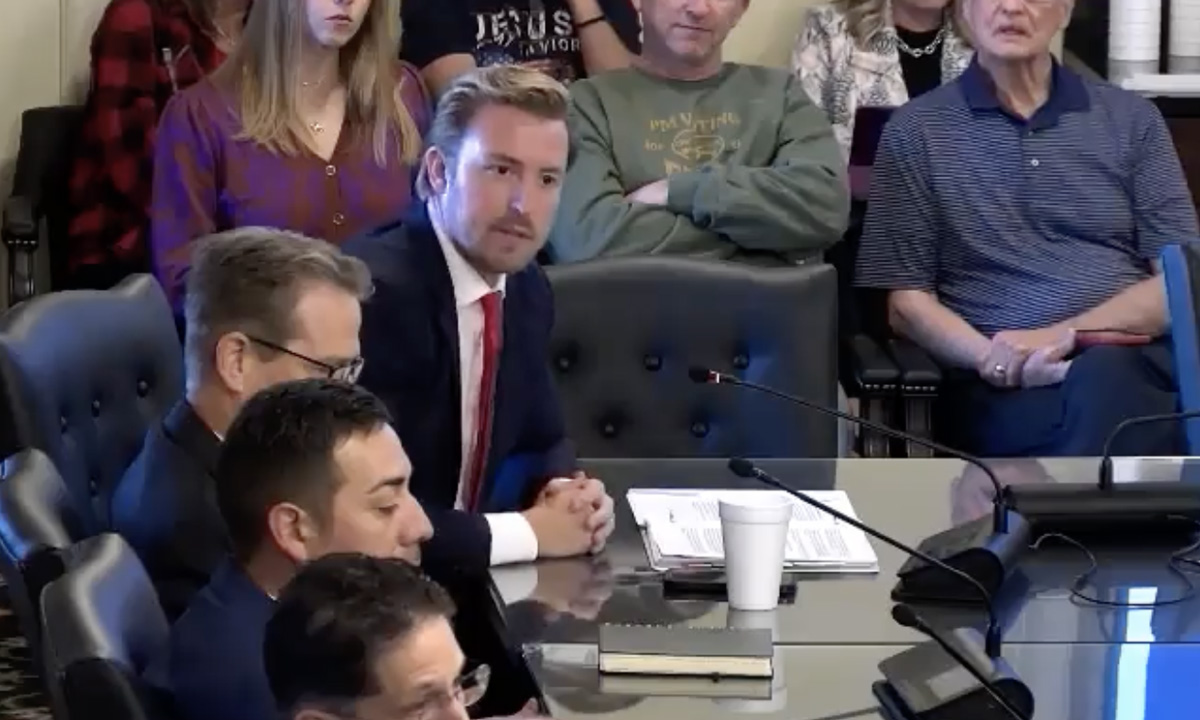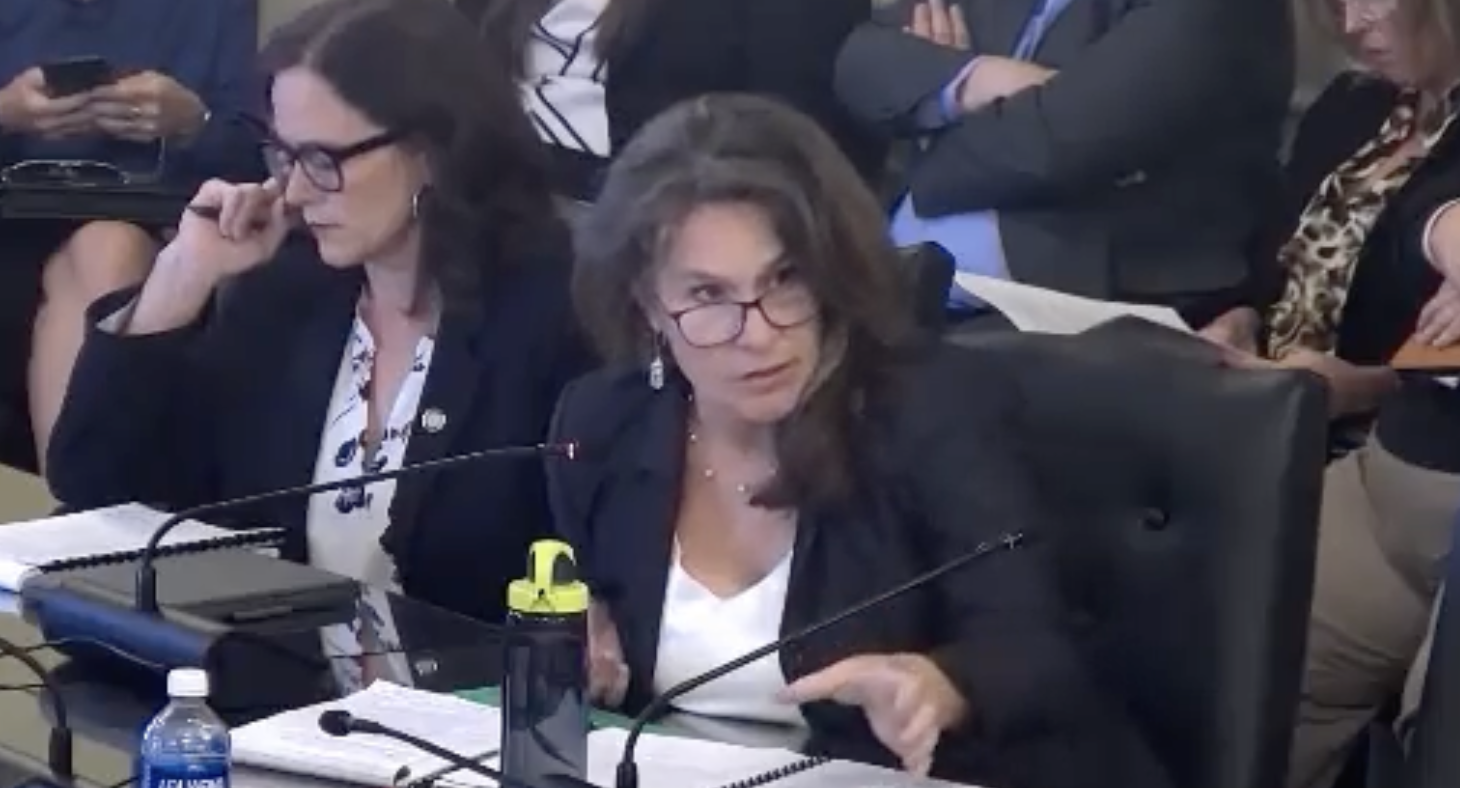Probe Finds Communication Breakdown at Oklahoma Ed Dept. Under Ryan Walters
The GOP-led probe, however, found no malfeasance by Walters, who called it a “waste of time.” Some Democrats raised additional questions.

Get stories like this delivered straight to your inbox. Sign up for The 74 Newsletter
Under Oklahoma state Superintendent Ryan Walters, the education department’s management of funds was hampered by long delays, “late or nonexistent communication” and internal disagreements, a state oversight agency said Tuesday.
The investigation, prompted by complaints from districts and the public, and led by the GOP-led House, cleared Walters of any misconduct and found no missing funds.
But Walters and his staff frequently put off asking for clarification when issues were ambiguous, often took months to correct mistakes and left districts in the dark about accessing funds.
The department “could have allayed districts’ concerns with communication in advance of delays or as soon as a problem was identified,” the report said.
Critics say the Republican state chief has neglected his duties, focused on culture war controversies and prioritized his own political career as top officials left the department.
Much of the back-and-forth between lawmakers and agency staff focused on what districts viewed as an unreasonable delay in getting preliminary estimates of Title I funds for high-poverty schools. In previous years, districts received those figures in the spring, allowing them time to recruit and hire staff. The drawn-out timetable left districts “understandably upset,” said the report, describing Walters’ staff as “overconfident” in their position that there was no delay.
Walters, however, took a defiant tone during a two-hour session before the oversight committee Tuesday.
“This is a waste of time for the people of the state of Oklahoma,” he said. “We have been transparent in everything that we do.”
He attributed the hold-up to fraud prevention efforts and cited the department’s success in stopping one unnamed district from using federal dollars to renovate a “fourplex” owned by the superintendent. Dan Isett, department spokesman, did not respond to a request for more details.
State officials informed districts of the extra fraud precautions by email, Walters said.
“We can’t make them read emails,” he said.
Democrats, however, seemed dissatisfied with the superintendent’s explanations.
“I wonder if the concerns cited by our districts will continue to be met with derision, to be quite frank,” said Rep. Melissa Provenzano, who represents Tulsa, home to the state’s largest school district.

The investigation sought to understand the “breakdown of communication,” said Regina Birchum, the oversight agency’s interim director. “All we wanted to do was try to bridge the gap.”
The agency surveyed districts about their concerns, but only about a third responded — proof, to Walters, that most districts have no complaints with the department. But Birchum added that some superintendents declined to complete the survey for fear of retribution.
Provenzano pressed Walters on whether he would follow the recommendations of the report, which include promptly reviewing legislation to identify potential confusion and improving communication to districts. He only said his office was reviewing them.
Thoughts on @oksde answers at the LOFT hearing:
— Rick Cobb (@grendelrick) October 29, 2024
It wasn’t my fault.
Everyone else is lying.
Blame the feds.
The legislature was unclear.
Am I missing anything? #oklaed https://t.co/68XysHT5Zy
Request to attorney general
While the report focused on five programs that districts and lawmakers complained about, including funds for school safety and emergency asthma inhalers, another Democrat, Rep. Meloyde Blancett, wants the oversight committee to expand its investigation into other issues. Those include travel expenses for political purposes and which private schools are receiving funds through the state’s tax credit scholarship program.
Republican Rep. Kevin Wallace, a co-chair of the committee, said he’ll leave that request up to new leaders in the legislature.
Blancett, however, has also asked Attorney General Gentner Drummond to offer a legal definition of “malfeasance” to “clarify the conditions under which legal action may be warranted.”
Drummond’s office has not yet responded.
The report also examined what happened with $150 million in school security funds lawmakers approved last year in response to the mass shooting in Uvalde, Texas.
While it took six months to do so, the department initially told districts they could roll over unused funds from one year to the next in case they were reserving the money for a large security upgrade. Then the department reversed that guidance, sparking complaints to lawmakers.
It took an opinion from Drummond, issued in August, to clear up the matter, but Walters’ lack of urgency in seeking clarity and miscommunication within the department were among the issues the oversight agency found “problematic.”
“Agency departments were not communicating clearly with each other, which resulted in incorrect communications to school districts,” the report said.
Provenzano’s questioning also pointed to one area where there still seems to be a misunderstanding among Walters’ top aides. She asked whether payroll savings would be used to purchase Bibles for classrooms — something Isett, the department spokesman, told reporters.
“We’ve never stated that,” Walters said.
She also asked whether communication with districts might improve if the department filled vacant positions. But that seems unlikely.
“Our goal,” he responded, “is to shrink government.”
In fact, following the meeting, he issued another demand in keeping with what he has described as his “aggressive, offensive agenda.” In a letter, he insisted Vice President Kamala Harris turn over $475 million as reimbursement for educating immigrant students in Oklahoma, even though federal law prohibits denying an education to non-citizens.
Harris’ office did not respond to a request for comment.
Get stories like these delivered straight to your inbox. Sign up for The 74 Newsletter

;)
